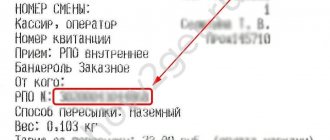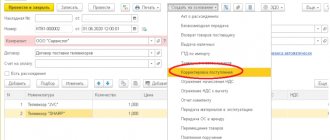Free legal consultation over the Internet 24 hoursLawyer on housing issues in St. Petersburg. Free legal consultation on labor disputes.
5/5 (8)
According to the letter of the law
When purchasing a product, a consumer does not weigh all the positive and negative aspects of purchasing this item.
Or, having already bought a product, he finds it in another store and cheaper, and after that the consumer has a great desire to return the unsuccessful purchase and return the money spent for it.
If I purchased a product at a pharmacy, can I return the product? Let's look at the legislation on this issue.
The Federal Law “On the Protection of Consumer Rights” states that you can return a product if:
- it is of inadequate quality, that is, it does not meet the standards (the case is damaged, the appearance is different, the expiration date has expired, etc.);
- it is not suitable in size, color, function or other characteristics for the consumer, although the quality meets the standards.
Types of pharmacy organizations
Expired on December 31, 2020: Order of the Ministry of Health and Social Development of the Russian Federation dated July 27, 2010 N 553n “On approval of types of pharmacy organizations.”
Entered into force: Order of the Ministry of Health of the Russian Federation dated July 31, 2021 No. 780n “On approval of types of pharmacy organizations.”
Comment: Four types of pharmacy organizations have been approved:
1. Pharmacies engaged in retail trade (dispensing) of medicines to the population. Non-production and production with the right to manufacture
- medicines;
- production of aseptic medicinal products;
2️.Pharmacies in the structure of medical organizations. Non-production and production with the right to manufacture
- medicines;
- production of aseptic medicinal products;
- radiopharmaceuticals.
3️.Pharmacy points, including those within the structure of a medical organization.
4️.Pharmacy kiosks.
Is it possible to return a tonometer of proper quality?
Important! In accordance with paragraph 2 of Article 477 of the Civil Code of the Russian Federation, returning goods to a pharmacy is possible, but for this the warranty period must be valid. If the warranty period is not established, then it is considered equal to 24 months from the date of purchase of the product.
Decree of the Government of the Russian Federation No. 55 of January 19, 1998 defines a list of goods that cannot be returned if they meet the declared quality.
Can I return the medicine to the pharmacy?
Whether the seller can refuse to issue a check to the buyer, read here.
What to do if the pharmacy refuses to provide free medicine, read the link:
Please note that most products sold in pharmacies cannot be exchanged or returned in accordance with current legislation:
- goods intended for the treatment or prevention of diseases in an outpatient setting, as well as products intended for medical purposes (hygiene and sanitation items, medical equipment and technology, oral hygiene products, glasses lenses, products intended for child care, medicines );
- goods for individual use (comb, toothbrush, etc.);
- perfumes and cosmetics sold in pharmacies.
A tonometer is a medical equipment that is included in the list of goods that cannot be returned to the seller if the product is of proper quality. A return or exchange of a tonometer is possible only if it does not meet the declared quality.
Attention! Our qualified lawyers will assist you free of charge and around the clock on any issues. Find out more here.
Destruction of drugs
Expired 12/31/2020:
1. Decree of the Government of the Russian Federation of September 3, 2010 N 674 “On approval of the Rules for the destruction of substandard medicines, counterfeit medicines and counterfeit medicines”
2. Decree of the Government of the Russian Federation of January 16, 2016 No. 8 “On amendments to the Rules for the destruction of substandard medicines, counterfeit medicines and counterfeit medicines”
The following came into force: Decree of the Government of the Russian Federation of September 15, 2020 N 1447 “On approval of the Rules for the destruction of seized counterfeit medicines, substandard medicines and counterfeit medicines.”
Comment: According to the Resolution, when an authorized body makes a decision on the seizure and destruction of counterfeit drugs and (or) substandard drugs, the owner of such drugs is obliged to:
✔remove these drugs from circulation, isolate and place them in a specially designated room (zone) or report disagreement with the specified decision to the authorized body within 30 days from the date of the decision; ✔destroy the seized drugs within 6 months from the date of the decision.
The destruction of falsified, substandard medicinal and counterfeit drugs is carried out by an organization that has a license to carry out activities for the collection, transportation, processing, disposal, neutralization, and disposal of waste of I-IV hazard classes.
The owner of substandard drugs or the organization carrying out the destruction draws up a destruction act, which indicates:
- date and place of destruction of the drug; - full name of the persons who took part in the destruction, place of work and position; - justification for the destruction of the drug; - information about the destroyed drugs (name, dosage form, dosage, units of measurement, series) and their quantity, as well as about the container or packaging; - name of the drug manufacturer; - information about the owner of the drug; - method of destruction of the drug.
The act of destruction is drawn up on the day of destruction of the drug. The number of copies of the act is determined by the number of parties involved in the destruction of the drug. The act is signed by all persons who took part in the destruction of the drug and is certified by the seal of the organization that carried out the destruction. A copy of the act of destruction of medicines, certified in the prescribed manner, is submitted within 5 working days from the date of its preparation or within 5 working days from the date of its receipt by the owner of the destroyed medicines to the authorized body using electronic means of communication.
Returning a defective pressure measuring device
If a product purchased from a pharmacy is defective, it must be returned to the seller or manufacturer directly, if possible. Moreover, it is worth remembering that when returning you must indicate all the shortcomings of the product.
Next, you can follow one of these paths of development:
- the pharmacy accepts the product that the consumer is trying to return and returns the money paid or replaces it with another product or eliminates the defects in this product. The outcome of this path will depend on the common opinion of the buyer and seller;
- the pharmacy does not accept goods that the consumer is trying to return and does not want to accommodate the buyer. In this case, the consumer has the right to demand an independent examination, which is paid for by the seller (in our case, the pharmacy) in his presence. If the consumer does not agree with the opinion of the examination, its result can be challenged in court.
Most often, in cases where the defect of the purchased product is clearly visible, institutions do not try to dispute this fact and enter into a dispute with the consumer, but accept the product back and return the money spent. But this option is only possible if the buyer has nothing to do with the defective product.
What to do if a defect is detected
The warranty period for such medical equipment is long. If a product is defective from the manufacturer and displays incorrect data, this will certainly appear within even a short time.
In this case, you need to take the goods, a check or receipt for payment, and contact the pharmacy where the purchase was made. If you do not have a receipt (for example, it was lost or thrown away), you will need written testimony from a witness who will confirm the fact of purchase at this pharmacy.
IMPORTANT! You should not take a device to the pharmacy that has been damaged due to the fault of the consumer. The examination will establish the truth and acceptance of the goods will be refused.
The pharmacy can accept a defective tonometer, exchange it for a working model, give a discount, and pay for repairs (if possible). The choice of requirement depends on the buyer; he coordinates further actions with the seller.
But there may also be a situation when the pharmacy refuses to process the return of the device. You will need to defend your rights in regulatory organizations, perhaps even in court.
How to file a claim against a pharmacy
If a product is purchased that does not meet the declared quality, the consumer has the right to return the product or exchange it for another; this is accompanied by filing a claim.
Although it is possible to return goods of proper quality, this will also be accompanied by the preparation of a statement.
Please note! To file a claim, you need to know the correct (official) name of the seller or point where the product was purchased of inadequate quality.
It would not be amiss to find out the last name, first name, and patronymic of the head of this pharmacy, because it is in his name that the claim is being filed. Typically, such information is contained in the consumer corner or on the official website.
If the consumer acts promptly and takes into account all the requirements presented in the claim, then the likelihood of resolving the issue before the court increases significantly. The consumer can try to resolve the situation without a letter of complaint, but the likelihood of resolving the problem tends to zero.
The claim is drawn up in two copies: one copy is given to the seller, and the second remains with the consumer. A copy that remains with the consumer - on it the seller must indicate the date of receipt, last name, first name, patronymic and position of the employee who received the claim.
Before you begin to describe the problem and the essence of the requirements, you need to indicate the time and date of purchase, as well as the place where the product was purchased, and additional circumstances of the purchase.
It is necessary to clearly and competently describe the product, indicating its brand, name, configuration, model, color, article number, serial number and other information that will help identify a specific product.
After this, the defects identified in the product and the circumstances under which this was discovered are indicated. It is advisable to indicate the fact that during the initial inspection of the goods the consumer could not detect these defects and that they did not arise through the fault of the consumer.
The impossibility of using the purchased product for its intended purpose due to these defects is also indicated.
Container, packaging and completeness of medicines
No longer in force on 12/31/2020: Order of the Ministry of Health of the Russian Federation dated December 21, 2021 N 979n “On approval of requirements for container volume, packaging and completeness of medicinal products for medical use.”
Entered into force: Order of the Ministry of Health of Russia dated July 31, 2020 N 779n “On approval of requirements for container volume, packaging and completeness of medicinal products for medical use.”
Comment: The production of drugs intended for internal use, as well as their sale and transfer, is carried out by drug manufacturers in containers containing the volume of the drug:
- no more than 25 ml with a volume fraction of alcohol over 50% and a course dose of drugs no more than 75 ml inclusive; - no more than 50 ml with a volume fraction of alcohol from 30% to 50% and a course dose of drugs not more than 100 ml inclusive; - no more than 100 ml with a volume fraction of alcohol up to 30% and a course dose of drugs not exceeding 200 ml inclusive.
The concentration of alcohol included in the medicinal product is indicated on the primary and secondary (if any) packaging. Manufacturers, when selling and transferring drugs, complete them in accordance with the instructions for medical use of the drug.
No longer in force on 12/31/2020: Order of the Ministry of Health of the Russian Federation dated February 8, 2021 N 47n “On approval of the list of medicinal products for medical use, for which requirements for container volume, packaging and completeness are established.”
Entered into force: Order of the Ministry of Health of Russia dated July 31, 2020 N 778n “On approval of the list of medicinal products for medical use, for which requirements for container volume, packaging and completeness are established.”
Comment: A list of alcohol-containing tinctures, drops, extracts and elixirs has been approved, in respect of which the requirements of Order 779n are established.
Timeframe for consideration of a claim by the seller
Please note! The claim is considered within ten days from the date of its filing. In the event of an examination or repair, the time for consideration of the claim may be extended. Please note that the warranty period for repairs is up to forty-five days.
If a manufacturing defect is discovered based on the results of the examination, the claim must be satisfied and the money must be returned within ten days.
Most often, the consumer has to face difficulties when returning goods to the store. One of the reasons for this can be called ignorance of your rights as a consumer and the timing of returning goods to the seller or manufacturer.
Sanitary regime in pharmacies
Expired on December 31, 2020: Order of the Ministry of Health of the Russian Federation dated October 21, 1997 N 309 “On approval of the Instructions on the sanitary regime of pharmacy organizations (pharmacies).”
Entered into force on 01/01/2021: Resolution of the Chief State Sanitary Doctor of the Russian Federation dated December 24, 2020 No. 44 “On approval of sanitary rules SP 2.1.3678 - 20 “Sanitary and epidemiological requirements for the operation of premises, buildings, structures, equipment and transport, and also the conditions of activity of economic entities engaged in the sale of goods, performance of work or provision of services.”
Comment: The fifth section of this resolution is devoted to pharmacy organizations and is called “Sanitary and epidemiological requirements for the provision of services by pharmacy organizations”
Carrying out an examination in case of disagreement to accept back a low-quality tonometer
To return a defective tonometer to a pharmacy, you must contact the seller. If a dispute arises regarding a defect in the tonometer, the seller must send the product for examination, and he shall bear all costs of the examination.
If, as a result of the examination, a defect is determined to be a breakdown that occurred due to the influence of the consumer, the cost of the examination will be borne by the consumer, but at the same time he can apply for warranty repairs.
Remember! Even if the consumer does not have a document confirming the purchase of goods from a given seller, this cannot be a reason for refusing to accept goods of inadequate quality.
Please note that the buyer has the right to request that the seller provide him with goods of the same type for temporary use during the period of warranty repairs.
Moreover, the buyer can refer to the fact that blood pressure monitors are not durable goods, which are not subject to the buyer’s requirement to provide goods of the same type.
Paragraph 27 of Resolution No. 55 establishes that a consumer who wants to repair or replace a product of inadequate quality has the right to demand this, and the seller is obliged to provide him with a product of the same type for temporary use.
Complaint to the seller.
In the event that the tonometer must be returned, the buyer must do the following:
- prepare a copy of your passport and purchase and sale agreement (if available);
- contact the pharmacy with documents and a receipt for the purchase of the product;
- submit a claim to the seller to return the goods;
- wait for a response from the pharmacy management.
Law No. 2300-1 states that the absence of a cash receipt is not grounds for refusal to issue a refund.
Registration rules according to the law.
The claim must be made in writing. It contains the following information:
- name of the legal entity to which the application is sent;
- personal data about the buyer;
- information about the purchase;
- defects found in the product;
- requirements for the seller;
- date and signature.
It is recommended to attach documents confirming the presence of a malfunction in the tonometer to the claim.
If the seller doubts that the cause of the defect is a manufacturing defect, he can send the product for examination.
The claim is submitted personally to the pharmacy where the tonometer was purchased. In this case, the application must be accompanied by the number and date of incoming correspondence.
If documents are sent via Russian Post, then it is necessary to issue a registered letter with notification.
Review period.
The head of the legal entity is given 30 days to consider the claim for the return of the tonometer. After this period, a response must be written to the applicant.
It indicates agreement or disagreement with the buyer's requirements. The product can be sent for examination by both the buyer and the seller.
In the first case, a citizen can, through the court, demand reimbursement for expert services if it is proven that a low-quality product was sold.
Statement of claim to a judicial authority
Note! In case of violation of the claim deadlines, and if the requirements remain unfulfilled, you need to file a claim with the court against the pharmacy.
Let's take a closer look at filing a claim.
Any statement of claim has 4 parts:
- introductory part - includes the header of the document;
- descriptive part – contains a complete description;
- operative part – includes a request;
- the final part contains the date of writing and the consumer’s signature.
Introductory part. In the upper right corner the court is indicated (full name of the court, its location). Below is the judge’s last name, first name, and patronymic. Next - the name of the plaintiff (last name, first name, patronymic, passport details, place of registration with index, telephone number for contact, email address) and the name of the defendant (includes the same information as the name of the plaintiff) and third parties.
In the center write the name of the type of document - “Statement of Claim for the Protection of Consumer Rights.”
The descriptive part begins with a red line, and the following information is indicated:
- the essence of violations of consumer rights. Illegal actions or inactions with references to the articles that were violated, and circumstances confirming the violation of consumer rights.
- calculation of the amount of the claim (if the claim is property).
- facts confirming the need to protect the interests of the plaintiff.
- evidence (arguments confirming all of the above).
Resolution part. It begins with the word “I ASK”, in this part you must indicate the requirements for the claim, that is, what you want to receive as a result of the consideration of the case.
Listed below are all the attachments to the statement of claim, that is, the evidence base (testimonies of witnesses, audio and video materials and other documents).
The final part includes the signature of the plaintiff with its transcript and the date of compilation. Please note that the document is signed by the plaintiff or an authorized representative who has the right to do so (with the attachment of a power of attorney or documents confirming his right).
ATTENTION! View the completed sample statement of claim for consumer protection:
Drug quality
Expired 12/31/2020:
- Order of the Ministry of Health of the Russian Federation dated July 16, 1997 N 214 “On quality control of medicines manufactured in pharmacy organizations (pharmacies).”
- Order of the Ministry of Health of the Russian Federation of October 16, 1997 N 305 “On the norms of deviations permissible in the manufacture of medicines and packaging of industrial products in pharmacies.”
- Order of the Ministry of Health of the Russian Federation of October 21, 1997 N 308 “On approval of the Instructions for the manufacture of liquid dosage forms in pharmacies.”
4.Order of the Ministry of Health of the Russian Federation dated July 20, 2001 N 284 “On approval of norms for the natural loss of medicines and medical products in pharmacy organizations, regardless of the legal form and form of ownership.”
Continues to be in force: In 2021, Order of the Ministry of Health of Russia dated October 26, 2015 N 751n, already familiar to all pharmacy workers, continues to be in effect “On approval of the rules for the manufacture and dispensing of medicinal products for medical use by pharmacy organizations and individual entrepreneurs holding a license for pharmaceutical activities”
Comment: When Order 751n was published, it did not cancel orders 214, 305, 308 and 284, which led to duplication and discrepancies. This defect has now been eliminated.
Order 751n contains not only the rules for the manufacture of different types of dosage forms and types of control, but also all the necessary information used in the manufacture of medicines in industrial pharmacies.
Limitation periods for filing a claim
The protection of consumer rights and the rights themselves are described in more than one piece of legislation, but there is no certainty regarding the establishment of limitation periods.
When determining deadlines, any professional lawyer will take the legislative norms of civil law as a basis:
- the period for filing a claim for ordinary goods is 1 year;
- For most products, the right to request a return or replacement remains for a period of 24 months from the date of purchase;
- to determine the time limits, you need to refer to the warranty period, because if the limitation period is 24 months, and the warranty period is 36 months, then the claim and claim can be filed during the warranty period.
Please note! From this it is clear that specific deadlines are not established by law. To determine the limitation period, it is also worth clarifying other features of the product.
According to the law, there are 3 types of deadlines:
- guarantee period. Each product has a period during which the manufacturer guarantees its performance. During the warranty period, the consumer has the right to use the product for its intended purpose, and if defects are detected, contact the manufacturer or seller;
- best before date. The period of time during which the product must properly perform its direct functions, and if defects are detected, the consumer has the right to file a claim;
- life time. This period is set depending on the type of product; this is the period during which the seller and manufacturer are responsible for the product. There are cases where the consumer can claim damages after this period has expired.
The Law on the Protection of Consumer Rights, namely Article 17, states that the consumer has the right to file a claim if he is dissatisfied with the purchase. And also conduct inspections of this store.
To determine the period, first of all, you need to be guided by documents that indicate the warranty period or expiration date, and these documents will be evidence in court.
If the warranty period or expiration date for the product is not determined, claims regarding defects in the product may be submitted by the consumer within two years from the date of receipt of the product from the seller or for a period of more than 2 years, unless otherwise provided by the contract or the legislation of the Russian Federation.
It follows from this that the deadlines established in Article 477 of the Civil Code of the Russian Federation and Article 19 of the Law “On the Protection of Consumer Rights” No. 2300-1 are the deadlines for determining defects and defects, but not the limitation period.
Return and exchange of medical goods: from bandages to tonometers and instruments
According to the provisions of a separate resolution of the Russian government No. 55 of January 19, 1998, the rules for regulating the sale and subsequent possible actions of the consumer clearly prohibit exchanges and refunds for medical products.
These products include a wide variety of products.
However, the legislation provides for situations in which the ban on the return and exchange of such products does not apply, and the seller is obliged, at the request of the buyer, to replace the purchased product or return the money, breaking the previously concluded sales contract.
1. The concept of medical products and the prohibition on their return and exchange 2. The possibility of exchange and return of medical products - protecting the rights of buyers 3. How to recognize a medical product as having inadequate quality 4. Other situations in which it is considered acceptable to return a medical product to the seller
The concept of medical products and the ban on their returns and exchanges
According to Russian legislation, medical products include not only medicines. The procedure for qualifying goods as medical devices is established, in particular in the provisions of Federal Law No. 323 of November 21, 2011.
Thus, such products include any items, tools, devices that, on their own or in combination with each other, can be used for rehabilitation, treatment and diagnosis of various diseases, as well as for their prevention, replacement and changes in the anatomical and physiological functions of the body, and also for conducting various studies and other medical procedures.
Thus, medical products include:
- Tonometers, glucometers and other measuring instruments;
- Bandages, cotton wool, needles, scarifiers, catheters, gloves, syringes and other consumables;
- Prostheses of all types;
- Bandages, fixing bandages, corsets and other orthopedic products;
- Baby products, pacifiers, breast pumps;
- Hygienic products, pads, tampons, toothbrushes;
- Canes, crutches, wheelchairs and other mobility aids;
- Scalpels, forceps and other medical instruments;
- Hospital equipment.
At the same time, the rules for the sale of any medical products, namely, the possibility of their return and exchange, are considered by the provisions of Government Decree No. 55 of January 19, 1998.
This document regulates the list of goods of proper quality that cannot be returned.
In particular, it is on the basis of the above resolution that pharmacies deny customers the opportunity to return their purchases, but without fully informing them of their rights.
note
Directly in the text of the above-described government decree, there is a ban on the exchange or return to the seller of medical goods only of proper quality. However, this resolution does not contain a direct prohibition on the exchange and return of medical products for reasons other than unsuitable style, size, color or appearance.
Possibility of exchange and return of medical products - protecting the rights of buyers
Legislatively, the exchange procedure for most purchased products is regulated by the provisions of Federal Law No. 2300-1, adopted on 02/07/1992. His Art.
18 allows you to exchange and return goods with defects to the seller.
Accordingly, since goods with defects are not products of adequate quality, this Federal Law does not conflict with the above-described Government Decree used by pharmacies.
This law does not distinguish between types of goods, and medical devices are not an exception to its rules. Thus, according to its provisions, if the goods turn out to be defective, the buyer has the right:
- Replace purchased products with similar ones of the same model and brand, but without any defects;
- Require the seller to replace the purchased product with a similar one of a different model or brand with a corresponding recalculation of the purchase price;
- Cancel the purchase and sale agreement concluded during the purchase and receive the full amount of funds spent on the purchase;
- Oblige the seller to immediately eliminate the defects of the purchased product, if possible.
Important fact
Although such a possibility is provided for by the provisions of the above-described Federal Law, in relation to medical products, the application of the rule regarding the reduction of the purchase price due to deficiencies is impossible, since the legislation directly prohibits the sale of medical products of inadequate quality.
The right to choose the appropriate method of returning or exchanging purchased goods remains with the buyer. The seller is obliged to satisfy any of the buyer's request options and cannot insist on a replacement instead of a refund.
How to recognize a medical product as having inadequate quality
Disadvantages according to which you can demand an exchange or refund for a purchased medical product are the following criteria:
- Lack of instructions in Russian or discrepancy between the information specified in the instructions for the relevant product and its actual appearance, color, technical characteristics or other functional or aesthetic indicators.
- Incorrect or missing labeling on the packaging. This applies to both information about the manufacturer, as well as the date of manufacture and the batch number in which the product was produced. Discrepancy in information on the packaging and the product itself can also be a valid reason for a refund or replacement.
- Expired date. Some medical products can only be used for a limited time. Purchased products that have expired are subject to a mandatory refund or replacement from the seller.
- Presence of signs of defects on the product itself or its packaging. Chips, cuts, structural flaws, incomplete equipment. For these reasons, the buyer may request a refund or exchange of the purchase for a new one. The same goes for unclear printing on instructions and packaging.
Important fact
The wrong size of the product, its style, as well as the buyer’s own mistake are not sufficient reasons for the pharmacist to unconditionally return the purchase.
Other situations in which it is considered acceptable to return a medical device to the seller
The legislation also provides for the possibility of returning medical goods if they are of adequate quality and do not have any defects.
The seller’s mistake, the buyer’s misinformation are direct violations of the current law “On the Protection of Consumer Rights.”
If the following violations occurred when purchasing a medical product, the buyer has the full right to return the money spent or replace the purchase:
- Selling a device or other medical product with an error, be it a confused name, model, brand or other features of such a product.
- Sales of medical products that require appropriate prescriptions. If a prescription has not been requested, this is an administrative offense and also gives the buyer grounds for a refund or replacement of the purchase.
- Providing false information about the presence of special safety rules for use or contraindications for a medical product. The buyer may demand an exchange or refund if such misinformation was potentially dangerous for him, which must be confirmed by the conclusions of the commission or a certificate from the attending physician, or if the use of the purchase could not lead to the achievement of the expected and promised result by the seller.
( 417 votes, 4.51 out of 5) Loading...
Source: https://pravo.moe/obmen-i-vozvrat-medicinskix-izdelij-apparatov-i-protezov/
Which court should I apply to?
To correctly determine the court, you need to refer to the Civil Procedure Code of the Russian Federation and Article 17 of the Law “On the Protection of Consumer Rights”. Such claims are considered by courts of general jurisdiction. The plaintiff decides which court to file the claim in.
Let's look at the choice the consumer faces:
- court at the place of registration of the consumer;
- judicial authority at the place of purchase of the goods;
- the court at the place of registration of the legal entity (pharmacy) or at the place of residence of the individual entrepreneur.
Important! If the pharmacy where the product was purchased is a branch or is located far from the main office of the legal entity, the consumer can file a claim at the location of the pharmacy.
Consideration of the claim on its merits
The time limit for consideration of a claim in court is established by the norms of the Civil Procedure Code. Article 154 of the Code of Civil Procedure establishes a rule on the time limits for consideration, which is general. District courts hear cases within two months, and magistrates within thirty days.
In case of suspension of a term in a civil case, the terms established by law may be longer due to the period of suspension.
If there is an unjustified delay in resolving the dispute, then the consumer has the opportunity to demand compensation. In this case, you will have to prove that the reason is the delay in the court's action.
Watch the video. How to write a statement of claim correctly:
Snitch
If the client’s problem, in his opinion, has not been resolved, he can file a complaint with Rospotrebnadzor, Roszdravnadzor, the prosecutor’s office, the court, and other authorities. Representatives of these authorities have the right to come to the pharmacy for an unscheduled inspection, and then other violations may be identified. We do not consider cases where the buyer complains not about the quality of the purchased product, but about a violation of any legally established standards (SES, fire safety, etc.). There is a known case when, during a prosecutor's inspection, 9 reports of administrative offenses were drawn up in only one pharmacy!
A customer-oriented company will, of course, take all possible measures to resolve a claim from the moment it arises, and will also make efforts to prevent claims from arising.
Claim for Vital and Essential Drugs prices
If the buyer considers the price of a drug to be too high, the pharmacist must provide information about the manufacturer’s registered (registry) price for drugs included in the list of vital drugs (VED). This obligation is established by Part 3 of Article 63 of the Federal Law of April 12, 2010 No. 61-FZ “On the Circulation of Medicines”. The pharmacist needs to convey to the buyer the legality of the pharmacy’s actions when calculating retail markups to the actual selling prices of manufacturers.
Reverse Acceptance Software
To ensure that basic acceptance control procedures are carried out quickly and accurately, special software is installed directly at pharmacy points. To work with medications, I have developed several solutions suitable for interaction with MDLP and the Honest Sign system. With their help, you can scan products at the point of receipt, control batch numbers, prices, and also sign electronic documents.
Return or exchange procedure
Making a claim
When a consumer encounters a defective product, the first thing he must do is write a free-form statement addressed to the organization (in particular, the head of the pharmacy) where the product was purchased. The claim must include the following aspects :
- Details of the organization where the goods were purchased. It is important to clarify the statutory name of the organization, position and full name of the head in whose name the application will be written. This information can be obtained either on the company’s website or in the consumer corner of the pharmacy itself.
- Full name and passport details of the buyer.
- Description of the product (serial number, article number, model, brand, etc.) indicating its shortcomings.
- Description of the situation in which the purchase occurred, namely: date, time, address of the outlet, full name of the pharmacy employee.
- A description of exactly how and when the defects in the product were discovered by the buyer.
If the buyer has not kept the receipt, then in the application it is necessary to refer to clause 5 of Article 18 of the Law “On Protection of Consumer Rights”, which determines that the receipt is not the basis for depriving the buyer of the opportunity to return defective goods after purchase. If there is a receipt, it is important to indicate this in the application, this can speed up the process of receiving funds.
At the end of the document, the date and signature of the buyer with a transcript are affixed. The claim is made in 2 copies . One of them bears a mark from the seller indicating that he has accepted this claim for consideration.
Sellers always try to avoid returns, so it is important to arm yourself with a regulatory framework to indicate the grounds for a return. You can rely on the following documents (it is also important to indicate them in the application itself):
- Article 18 of the Law “On Protection of Consumer Rights”, which determines that the consumer can return the product if it is not of proper quality;
- Article 309 of the Civil Code of the Russian Federation, which determines that the seller and buyer must fulfill their obligations fully according to the word of the law;
- Article 310 of the Civil Code of the Russian Federation, which determines that neither one nor the other party can unilaterally refuse to fulfill their obligations.
If the product is returned on the day of purchase, then there is no need to file a claim. The basis for returning the goods will be a cash receipt order (RO), signed by the head of the pharmacy.
Documenting
The process of processing the return of goods depends on the period within which the buyer wishes to return it.
If this happened on the day of purchase, then the buyer is issued a cash receipt order, according to which he can immediately receive payment at the cash desk. The cashier draws up a statement on the return of money for unused cash receipts in one copy. It must contain the following information:
- details and name of the organization according to registration documents, as well as TIN;
- brand, model, cash register number where the receipt was issued upon purchase;
- act number, date of its preparation;
- number of the receipt, the cost of the purchase made;
- Full name and position of the person with whose permission the return is made.
This document is issued once at the end of the day, and not after each return. Several checks can be entered into it. The form of the KM-3 act is unified by Resolution of the State Statistics Committee of Russia No. 132 of December 25, 1998.
The act contains the signatures of several officials: chief accountant, cashier, senior cashier, manager. The document is also accompanied by a purchase receipt, the return of which is issued, and an application for the return of goods from the consumer. In some cases, an explanatory note from the pharmacist who made the incorrect sale is attached.
Reference. If a cash receipt is lost, the buyer writes a statement of loss in free form addressed to the organization.
If the goods are returned after the day of purchase, then it is impossible to return the money from the operating cash desk when the client applies, according to the letter of the Federal Tax Service dated April 11, 2013 No. AS-4-2/6710. In this regard, this act is not issued.
In this case, when a dissatisfied buyer contacts us, a document regarding the return of the goods is drawn up. This document is created in any form in printed or handwritten form in 2 copies and the following is indicated there:
- details of the organization and full name of the head in the header of the act and details of the applicant;
- product and its defects;
- if the act is drawn up after the examination, then indicate its results;
- the basis for returning the goods (you can specify a regulatory document).
Based on the KM-3 act, a cash order is issued in the KO-2 form and a sum of money is issued to the buyer from the organization’s main cash register.
Deadlines
The seller must return money for low-quality goods within 10 days from the date of the buyer’s request.
If the buyer wishes to replace the product with another, the pharmacy is obliged to satisfy the request for an exchange no later than 7 days from the date the buyer submits an application . If an examination is required, the period can be extended to 20 days.
Summary
When refusing a customer’s complaint, the pharmacist needs to understand that the communication with the dissatisfied customer may not end there. A well-written response to a claim indicating the reasons for refusal, with reference to the norms of current legislation, determines whether the buyer will have grounds to appeal to government agencies or the court.
They want to deprive your pharmacy of its license or bring it to administrative liability, but do you think this is unfair? Do you have legal questions about organizing pharmaceutical activities? Send your questions to The most interesting questions and answers to them will be published on the pages of the KS!
To receive legal advice within the framework of the “Katren - Legal Protection” project, please contact your manager.







